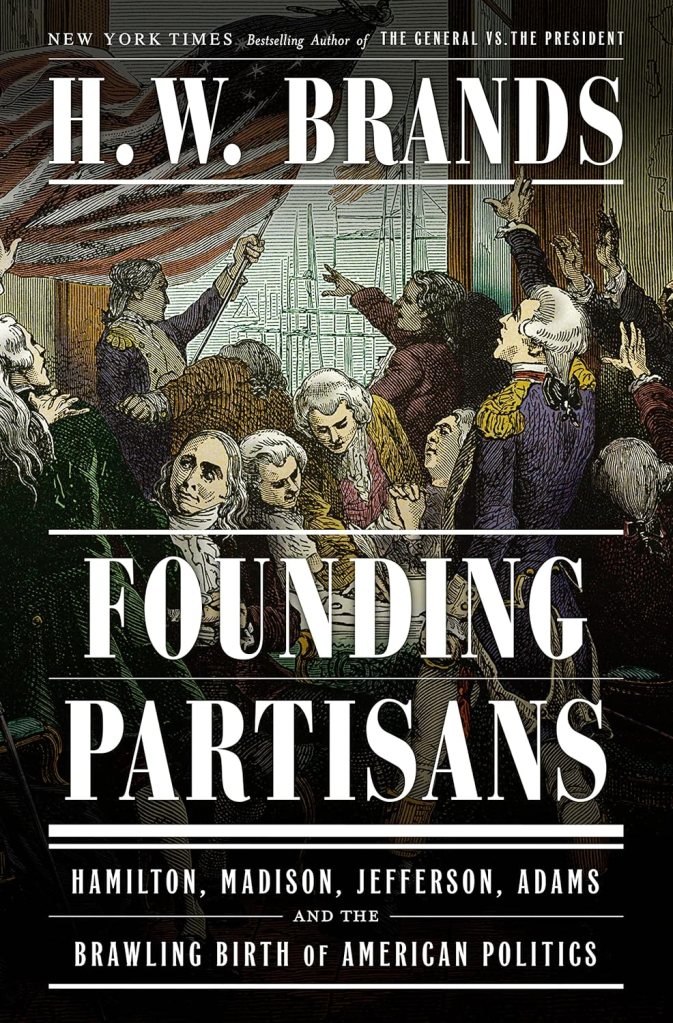Book Reviews: Victory City: Salman Rushdie
Published 9:52 am Thursday, April 25, 2024

- Founding Partisans: HW Brands
Victory City by Salman Rushdie
Salman Rushdie is a writer best known, sadly and arguably, for a fatwa placed on his head rather than for the books he writes.
Which is horrible not only from the perspective of Rushdie having to live nearly 40 years under the violent shadow of a death threat placed upon him by the ruler of Iran but also because he writes wonderful books.
The fatwa came following the 1988 publication of his novel, “The Satanic Verses.” In recent weeks, Rushdie’s “Knife: Meditations After an Attempted Murder” was published; it is a memoir based on the 2022 assassination attempt where he was stabbed multiple times.
In between, Rushdie penned several novels – many of which are satires. Considered an “Indian-born British-American novelist” and given the life he has led for the past 36 years, he has a diverse portfolio of life experiences and insights.
“Victory City” was the novel published in 2023 after the assassination attempt.
It is a magical, mystical tale of a goddess promising Pampa Kampana, an orphaned girl, that she will live 250 years – from the 14th century into the 16th century – and create a great nation that will rise to empire and decline during her life time.
Pampa Kampana meets two brothers, both sheep herders, and convinces them to plant seeds that will become the population of Bisnaga – “victory city.” Though she whispers the city and its population to life, telling each person their individual story, the brothers become the first kings of Bisnaga and the slow-aging Pampa Kampana becomes their queen, one after the other.
“Victory City” chronicles the various kings, queens, people, travelers, counselors, children, battles, exiles, etc., of Pampa Kampana’s long life as she attempts to implement her divine mission – giving women equal rights in a patriarchal world.
Rushdie sets up the novel as if it is a translation of an epic poem penned centuries ago by Pampa Kampana. The story follows satiric traditions such as Voltaire’s “Candide” and Jonathan Swift’s “Gulliver’s Travels” – fantastic and mundane things occur simultaneously, while providing thoughts about our world.
At times, this fairy tale style of narration becomes tedious. The book often feels like it should be much shorter than its 331 pages though Rushdie offers the reader insights that are both profound and funny.
He stamps the conclusion with a payoff that should be a wonderful revelation to astute readers – though some may draw the conclusion much earlier in the story or take a different lesson from the book all together.
Founding Partisans by H.W. Brandsw
Historian H.W. Brands continues skipping back and forth and back again through history like a traveler with an itchy finger on the remote control of a time machine.
Brands has penned biographies on Benjamin Franklin, Ronald Reagan, Theodore Roosevelt, Franklin D. Roosevelt, Ulysses S. Grant, etc. He’s written histories on the pre-Civil War era with “The Zealot and the Emancipator” about John Brown and the pre-presidential Abraham Lincoln, “The General vs. the President” about the policy disagreements of Gen. Douglas MacArthur and President Harry Truman, “Our First Civil War” about the American Revolution pitting independence patriots against royal loyalists, “Heirs of the Founders” about the early 19th century American leaders Daniel Webster, John Calhoun and Henry Clay, etc.
Brands’ latest, “Founding Partisans: Hamilton, Madison, Jefferson, Adams and the Brawling Birth of American Politics,” chronicles the origins of partisan politics in the United States.
While we often see 21st century politics as sharply divided amidst politicians and citizens, “Founding Partisans” reveals that contentious political disagreements are as old as the nation.
To reveal the early divides between federalists and states rights leaders, and the creation of the elected party in power and the opposition party in the minority, Brands spends a lot of these 400-plus pages delving into the history of the United States from the Constitutional Convention to the early elected presidential administrations and Congress.
Partisanship predates the constitutional United States as some leaders opposed the Constitution and its creation of a central American government and preferred the Articles of Confederation which loosely aligned each state while granting each state autonomy.
Sometimes the thread of Brand’s theme is faint in covering the early history of the nation but the basic tenet of the book is never completely lost – people have had differing views of what America and being an American is for as long as there has been a United States of America.





